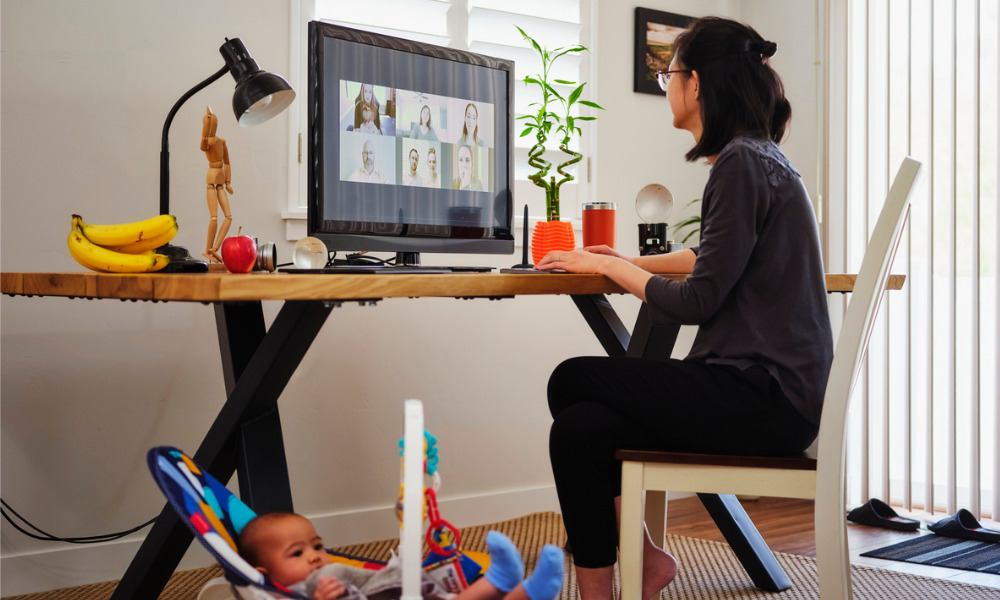
Remote work was a life saver – but it's come at a cost

As the ongoing COVID-19 pandemic continues to plague Canada, employers are relying more and more on remote working models. Remote work saved many of our businesses, allowing organizations to maintain productivity while keeping employees safe and secluded from the virus.
However, this change came at a cost. Working from home has taken quite the toll on employee mental wellbeing, with more and more people reporting feeling depressed, stressed, and ultimately burned out. Now, as vaccines roll out and a return to work looks imminent, employers need to focus their attentions on the wellbeing of their teams.
HRD spoke to Meghan Stettler, director of the O.C. Tanner Institute, and speaker at our upcoming webinar Strategies to Overcome Digital Fatigue and Stay Connected, who revealed the impact tech has had on employee psyches.
“In the wake of a global pandemic, we’ve been forced to experience work life through a collection of pixels across a one-dimensional screen,” Stettler told HRD. “From desktop, laptop, tablet, or phone, no notification goes unnoticed in the never-ending cycle of digital to-dos as the lines between work and home life become increasingly blurred. While the pandemic has taken a toll on wellbeing overall, technology has certainly played its part in the rise of burnout. More than anything, recognizing digital fatigue requires leaders to know their people, to be sensitive to their situation and behaviors, and engage in meaningful dialogue of trust and support.
Read more: Debunked! Three myths on workplace resilience
“A great CHRO in Canada implemented a ‘come-as-you-are’ policy this past year, meaning that it was equally fine to be dressed in a suit or sweatpants, camera on or camera off, speaking or listening, etc. Understanding that people’s mental and emotional states are shifting just as dramatically as the pandemic itself allows us to lead with empathy and support our people in the ever-evolving moments of their lives.”
It’s this ability to respect the individual needs of your employees that differentiates a good leader from a great one. Employers need to remember that what works for one of their people, may not necessarily be healthy for another. As HR leaders, we need to take the time to listen and understand what each of our employees need to make them happy, healthy, and productive in the coming months. Afterall, recent research from O.C. Tanner found that the pandemic made 52% of Canadians feel physically or emotionally exhausted. But it’s not the COVID chaos that’s causing this fallout – it’s our reliance on technology.
“Currently, 37% of Canadians say that video calls leave them feeling drained, 29% say the number of apps they are expected to use gets in the way of productivity, and 38% say the amount of technology they use makes it difficult to disconnect from work,” Stettler told HRD. “Clearly, more than a third of the Canadian population is suffering from some form of digital fatigue. That’s because organizations often implement technology as a so-called “silver bullet solution” without any consideration for how it will affect the daily experiences of employees – leading to increased frustration and dissatisfaction.
Read more: Why it’s crucial to be a resilient leader
“However, O.C. Tanner’s 2021 Global Culture Report demonstrates that when people and culture are considered in technology decisions, there is an exponential rise in the likelihood of engagement, as well as key connections to purpose, leadership, and appreciation. When technology is fully integrated into an organization’s culture, there is a 33% decrease in the incidences of moderate to severe burnout. So, when considering new technology, especially in the instance of remote work, organizations should seek employee input and feedback across all ladders of the organization, and once approved, recruit employees to be champions of new technology to help others engage.”
To hear more from Meghan Stettler on how you can improve your employee wellbeing, sign up for HRD’s upcoming webinar taking place on May 27th here.